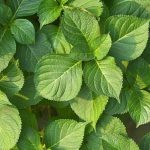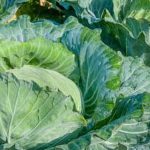What is a natural pesticide for vegetable gardens? As gardeners become more conscious of the impact of synthetic chemicals on their crops and the environment, the demand for natural alternatives has grown. In this article, we will explore the importance of using natural pesticides in vegetable gardens and how they can benefit both your plants and the ecosystem.
Using natural pesticides is crucial for maintaining a healthy and sustainable vegetable garden. These non-toxic alternatives help control pests while minimizing harm to beneficial insects, wildlife, and the surrounding environment. Understanding the different types of natural pesticides available and how they work is essential for successful pest management in your garden.
In the following sections, we will delve into the various benefits of using natural pesticides over synthetic alternatives, provide a list of effective natural pesticides for vegetable gardens along with DIY recipes using common household ingredients, offer tips for application, and address potential risks or drawbacks associated with their use. Join us as we embark on this journey to create healthier, thriving vegetable gardens without compromising on sustainability.
Understanding Natural Pesticides
Natural pesticides are a crucial component of maintaining a healthy and thriving vegetable garden. Understanding the different types of natural pesticides and how they work is essential for organic gardeners looking to protect their crops without the use of harmful chemicals. When it comes to natural pesticides, there are several options available, each with its unique mode of action.
One common type of natural pesticide is insecticidal soap, which works by suffocating soft-bodied insects like aphids, spider mites, and whiteflies. This soap-based pesticide is safe to use on most vegetables and can be an effective solution for controlling pests without causing harm to beneficial insects or animals.
Additionally, neem oil is another popular natural pesticide that works as both an insecticide and fungicide. Derived from the seeds of the neem tree, neem oil disrupts the life cycle of insects and prevents fungal diseases from taking hold in the garden.
For those dealing with larger pests like deer or rabbits, physical barriers such as fences or netting can act as natural pesticides by preventing these animals from accessing the garden. These barriers are non-toxic and provide a lasting solution to pest problems without the need for chemical intervention. By understanding the different types of natural pesticides available, vegetable gardeners can make informed decisions about how to best protect their plants while maintaining a commitment to organic and sustainable practices.
| Natural Pesticide Type | Mode of Action |
|---|---|
| Insecticidal Soap | Suffocates soft-bodied insects |
| Neem Oil | Acts as an insecticide and fungicide by disrupting pest life cycles |
| Physical Barriers (fences, netting) | Prevents larger pests from accessing the garden |
Benefits of Using Natural Pesticides
Natural pesticides offer several benefits when it comes to protecting vegetable gardens from pests and diseases. Here are some advantages of using natural pesticides over synthetic alternatives:
- Environmentally friendly: Natural pesticides are derived from plants, minerals, or other naturally occurring substances, making them less harmful to the environment compared to synthetic chemicals.
- Safe for beneficial insects and wildlife: Unlike synthetic pesticides, natural alternatives are less likely to harm beneficial insects such as bees and butterflies, as well as other wildlife in the garden.
- Reduced chemical exposure: Using natural pesticides can help reduce the risk of chemical residues on vegetables, ultimately promoting healthier and safer produce for consumption.
In addition to these advantages, natural pesticides are often more sustainable and cost-effective in the long run. By reducing reliance on synthetic chemicals, vegetable gardeners can contribute to a healthier ecosystem while also maintaining the quality and productivity of their gardens.
Ultimately, choosing natural pesticides for vegetable gardens not only helps protect the environment and beneficial insects but also promotes a safer and more sustainable approach to gardening. When used correctly, natural pesticides can effectively control pests and diseases while minimizing potential risks associated with synthetic alternatives.
Effective Natural Pesticides for Vegetable Gardens
Natural pesticides are an essential part of maintaining a healthy and thriving vegetable garden. While synthetic pesticides may seem like the easiest solution to pest problems, they often come with harmful side effects for both the environment and human health. This is where natural pesticides come in, offering an effective and safe alternative for controlling pests in your garden.
Neem Oil
One of the most popular natural pesticides for vegetable gardens is neem oil. Derived from the seeds of the neem tree, this multipurpose oil acts as a powerful insecticide, fungicide, and miticide. Neem oil works by disrupting the life cycle of insects at various stages, targeting pests such as aphids, whiteflies, and mites. To use neem oil as a pesticide, simply dilute it with water and spray it on affected plants.
Diatomaceous Earth
Diatomaceous earth is another effective natural pesticide that can be used in vegetable gardens. This powdery substance is made from fossilized remains of diatoms and works by physically damaging the exoskeletons of insects, leading to dehydration and death. Diatomaceous earth can be applied directly onto plants or sprinkled around garden beds to control pests like slugs, snails, and beetles.
Soap Spray
A simple but effective natural pesticide for vegetable gardens is a soap spray made from liquid castile soap or pure olive oil soap mixed with water. The fatty acids in the soap disrupt the outer layer of soft-bodied insects like aphids, mealybugs, and spider mites, ultimately killing them. To make a soap spray, combine one to two tablespoons of liquid soap with a quart of water and thoroughly coat affected plants.
By incorporating these natural pesticides into your gardening routine, you can effectively control pest infestations while minimizing harm to the environment and promoting a healthier ecosystem in your vegetable garden.
DIY Natural Pesticide Recipes
When it comes to tending to a vegetable garden, using natural pesticides can be a great way to protect your plants from pests while avoiding the harmful chemicals found in synthetic alternatives. Fortunately, there are several DIY natural pesticide recipes that can be made using ingredients commonly found at home. Not only are these homemade remedies effective, but they are also safe for both the environment and those who consume the produce.
Here are some DIY natural pesticide recipes using ingredients commonly found at home:
- Oil spray: Mix 1 cup of vegetable oil with 1 tablespoon of dish soap. Dilute 2 teaspoons of this mixture in 1 quart of water and spray on plants to suffocate insects such as aphids and mites.
- Garlic and chili pepper spray: Blend together 4 cloves of garlic, 2 hot chili peppers, and 1 quart of water. Let the mixture sit overnight, then strain before spraying on plants to deter pests like caterpillars and beetles.
- Neem oil spray: Combine 1 tablespoon of neem oil with 1/2 teaspoon of mild liquid soap in a gallon of water. This mixture can help control insect pests as well as fungal diseases.
These DIY natural pesticide recipes are easy to make and provide an environmentally-friendly alternative to store-bought pesticides. By using these homemade remedies, you can ensure that your vegetable garden remains healthy and free from harmful chemicals. With just a few simple ingredients from your pantry, you can effectively protect your plants while promoting a more sustainable approach to gardening.
Tips for Using Natural Pesticides
Proper Application Techniques
When using natural pesticides in your vegetable garden, it is important to apply them correctly in order to maximize their effectiveness. One key technique is to apply the pesticide when the weather is calm and dry, as this will prevent the spray from drifting and affecting unintended areas. It is also crucial to read the label instructions carefully and follow the recommended application rates to avoid overuse or underuse of the pesticide.
Timing Is Everything
Another important tip for using natural pesticides is to apply them at the right time. For example, using certain natural pesticides early in the morning or late in the evening can be more effective, as this is when many pests are most active. Additionally, it’s essential to monitor your vegetable garden regularly for signs of pest infestations so that you can intervene with natural pesticides at the earliest opportunity.
Integrated Pest Management
In addition to using natural pesticides, implementing integrated pest management (IPM) strategies can help control pests in a sustainable manner. This involves combining cultural, biological, and physical pest control methods with minimal use of traditional pesticides. By practicing IPM alongside natural pesticide use, you can create a balanced ecosystem in your vegetable garden while effectively managing pest populations.
Potential Risks and Drawbacks
Natural pesticides offer many benefits for vegetable gardens, but it’s important to be aware of the potential risks and drawbacks associated with their use as well. One potential risk of using natural pesticides is that they may not be as effective as their synthetic counterparts.
While natural pesticides can help control pests, they may not always be as potent or long-lasting as synthetic chemicals. Additionally, some natural pesticides may also harm beneficial insects, such as bees and ladybugs, if used improperly.
Another drawback of using natural pesticides is that they may require more frequent applications compared to synthetic alternatives. This can be time-consuming and labor-intensive for gardeners, especially if they have large vegetable gardens or are dealing with persistent pest infestations. Furthermore, some natural pesticides may have a strong odor or unpleasant taste, which could make them less appealing for gardeners who prefer a more hands-off approach to pest control.
To mitigate the potential risks and drawbacks of using natural pesticides in vegetable gardens, it’s important for gardeners to carefully follow the instructions provided with each product. This includes applying the pesticide at the recommended concentration and frequency, as well as avoiding direct contact with skin and eyes. Additionally, rotating different types of natural pesticides can help prevent pests from developing resistance and ensure effective pest control in the long run.
| Potential Risks | Drawbacks |
|---|---|
| Not as effective as synthetic pesticides | Require more frequent applications |
| May harm beneficial insects | Strong odor or unpleasant taste |
Conclusion
In conclusion, using natural pesticides in your vegetable garden can have numerous benefits for both your plants and the environment. By opting for natural alternatives over synthetic pesticides, you can effectively manage pests while minimizing the impact on beneficial insects, wildlife, and soil health. Additionally, natural pesticides are often safer for human consumption and can contribute to a healthier and more sustainable garden overall.
As discussed in this article, natural pesticides come in various forms such as plant-based extracts, beneficial insects, and microbial agents. These alternatives work with nature rather than against it, providing effective pest control without leaving harmful residues that can accumulate in the environment. By understanding the different types of natural pesticides and how they work, gardeners can make informed decisions about which options are best suited for their specific needs.
Ultimately, embracing natural pesticides in your vegetable garden not only promotes a more eco-friendly approach to gardening but also contributes to the overall health and well-being of your plants. With an array of effective natural pesticide options as well as DIY recipes using common household ingredients, there are plenty of ways for gardeners to make the switch towards a more sustainable and environmentally conscious approach.
It is our responsibility as stewards of the land to prioritize the use of natural pesticides and minimize our impact on the delicate balance of our ecosystems.
Frequently Asked Questions
How Do You Make Natural Pesticide for Vegetables?
To make a natural pesticide for vegetables, you can use ingredients like neem oil, garlic, hot peppers, or even soap and water. These can help repel pests and protect your vegetable plants without the use of harmful chemicals. It’s important to research and follow recipes carefully to ensure the effectiveness and safety of the natural pesticide.
What Can I Use to Stop Bugs From Eating My Vegetable Plants?
There are several methods you can use to stop bugs from eating your vegetable plants. You can try planting companion plants that naturally repel insects, such as marigolds or mint.
Additionally, using row covers or netting can physically prevent bugs from reaching your plants. And as mentioned earlier, natural pesticides made from ingredients like neem oil or garlic can also be effective in deterring bugs.
What Is the Best Homemade Plant Pesticide?
The best homemade plant pesticide may depend on the specific pests you are dealing with and the type of plants you are trying to protect. Some common homemade plant pesticides include solutions made from ingredients like baking soda, oil sprays, or vinegar mixtures.
However, it’s important to research and test these options carefully to ensure they are effective without causing harm to your plants.

If you’re looking to get into vegetable gardening, or are just looking for some tips on how to make your current garden better, then you’ve come to the right place! My name is Ethel and I have been gardening for years. In this blog, I’m going to share with you some of my best tips on how to create a successful vegetable garden.





